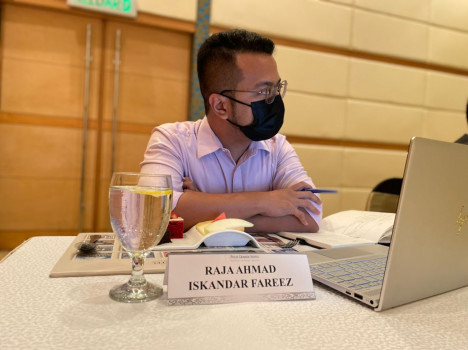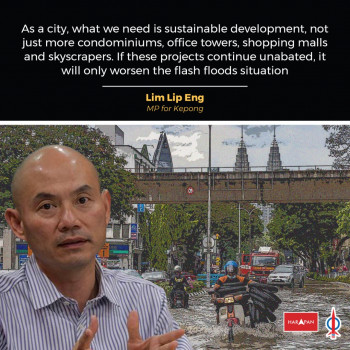by Syerleena Abdul Rashid
Malaysians are growing rather accustomed to the never-ending cases and scandals that highlight the questionable decisions made by our elected leaders, but this is by no means a sign that we have succumbed to our fate as citizens of a nation spiraling towards a failed state.
The recent debate on whether Malaysia is or is not a secular state occurs every once in awhile when confusion and ignorance resurfaces. So, when Minister Jamil Khir made the unfortunate remark to state that our nation is an Islamic State, it is quite clear that he has misinterpreted our Federal Constitution and this is a clear contradiction to existing laws.
It appears that being the Minister of Islamic Affairs, he has taken it upon himself to bulldoze this notion into the minds of gullible Malaysians. This act has incurred the wrath of senior political leaders – not only from the opposition but also those from the same coalition.
As we read more and more about religious strife brought upon by those bent on creating disunity amongst other Malaysians, it is apparent that public discourse in Malaysia is over-obsessed with individualism and shallow interpretations of scripture, while not a lot is being done to address real problems that contradict the principles of humanism, such as corruption or human rights violations.
Recently, Malaysia was downgraded to Tier 3 status by the United State Government in their Trafficking in Persons Annual Report (our country now joins the rank of North Korea, Afghanistan, Democratic Republic of Congo and Iran), and this does not warrant any celebration or congratulatory high-fives.
So in light of this recent demotion, Malaysians must reflect on one thing; in these trying times our country needs good political leadership to lift us out of this quandary.
Good leaders are made, not born
We often find ourselves asking the question, especially when our country seems to be on the brink of escalating chaos, are men or women born leaders? Good (and unfortunately, bad leaders) are made and not born, although, one might debate on the validity of such claims. However, there are always a few of those who seem to be born with political finesse and competence, therefore taking on certain political gambits seem like second nature to these select few.
Plato once said, the measure of a man is what he does with power. This is a statement that all Malaysians must hold true. With power comes huge responsibilities and great political leaders never forget that. They will use that power to set ambitions, goals and inspire several generations to come. We need someone who is enthused about causes and most importantly, about the work that comes with being a leader. Malaysians have no room for someone who merely plays lip service and would rather spend more time a broad on “business trips” paid for by our taxes and public funds.
During times of uncertainty or crisis, Malaysians need to look up to leaders to find reassurance and much-needed security to help us get through difficult times. We will have many questions, demand answers and may sometimes come across as aggressive, but a good leader will not threaten us with the Sedition Act and will instead remain calm in during the storm.
Malaysians are leery of self-appointing and self-serving politicians. Our history is replete with many examples that remind us the great importance of preserving freedom (be speech, religion and the choice to interact with other Malaysians regardless of race or religion). Politicians who use their power to suppress freedom are dangerous, and that is why our constitution exists to safeguard us and our nation from degenerating into tyranny.
Reluctance to promote capable men and women to hold office based on merit is downright nepotism and this creates one of the main obstacles to good governance. Over the past decades, irresponsible political leaders have ignored the significance of merit in order to please those closest to them.
Subsequently, the political turmoil our country is famous for is a direct result of this damaging trend which destroys development and nation-building. A good leader will influence his subordinates to encourage excellence and success. Developed nations are built on templates that promote positive reinforcement and meritocracy. After all, competition is only healthy as it creates growth and enables us to strive for the best. On the other hand, nepotism and monopoly often results to complacency and give way to mediocrity, which has unfortunately, become a common Malaysian trait.
However, it is never too late to repair the damages created by overzealous charlatans of the past and present. Malaysians can begin to overcome this by disseminating positive reinforcement conveyed by our actions and thoughts. We must understand the virtues of good political leadership and embody the concept of unity, if we are to succeed as a nation and administer the quality of change in the next few years.
* Syerleena Abdul Rashid is a member of the DAP and is the DAP Wanita Bukit Bendera Political Education Director.
* The views expressed in this article are the personal opinion of the columnist



